第55章
with regard to these pleasures, but not with regard to any of the others. And for this reason we group together the incontinent and the self-indulgent, the continent and the temperate man-but not any of these other types-because they are concerned somehow with the same pleasures and pains; but though these are concerned with the same objects, they are not similarly related to them, but some of them make a deliberate choice while the others do not.
This is why we should describe as self-indulgent rather the man who without appetite or with but a slight appetite pursues the excesses of pleasure and avoids moderate pains, than the man who does so because of his strong appetites; for what would the former do, if he had in addition a vigorous appetite, and a violent pain at the lack of the 'necessary' objects?
Now of appetites and pleasures some belong to the class of things generically noble and good-for some pleasant things are by nature worthy of choice, while others are contrary to these, and others are intermediate, to adopt our previous distinction-e.g. wealth, gain, victory, honour. And with reference to all objects whether of this or of the intermediate kind men are not blamed for being affected by them, for desiring and loving them, but for doing so in a certain way, i.e. for going to excess. (This is why all those who contrary to the rule either are mastered by or pursue one of the objects which are naturally noble and good, e.g. those who busy themselves more than they ought about honour or about children and parents, (are not wicked); for these too are good, and those who busy themselves about them are praised; but yet there is an excess even in them-if like Niobe one were to fight even against the gods, or were to be as much devoted to one's father as Satyrus nicknamed 'the filial', who was thought to be very silly on this point.) There is no wickedness, then, with regard to these objects, for the reason named, viz. because each of them is by nature a thing worthy of choice for its own sake;yet excesses in respect of them are bad and to be avoided. Similarly there is no incontinence with regard to them; for incontinence is not only to be avoided but is also a thing worthy of blame; but owing to a similarity in the state of feeling people apply the name incontinence, adding in each case what it is in respect of, as we may describe as a bad doctor or a bad actor one whom we should not call bad, simply. As, then, in this case we do not apply the term without qualification because each of these conditions is no shadness but only analogous to it, so it is clear that in the other case also that alone must be taken to be incontinence and continence which is concerned with the same objects as temperance and self-indulgence, but we apply the term to anger by virtue of a resemblance; and this is why we say with a qualification 'incontinent in respect of anger' as we say 'incontinent in respect of honour, or of gain'.
5
(1) Some things are pleasant by nature, and of these (a) some are so without qualification, and (b) others are so with reference to particular classes either of animals or of men; while (2) others are not pleasant by nature, but (a) some of them become so by reason of injuries to the system, and (b) others by reason of acquired habits, and (c) others by reason of originally bad natures. This being so, it is possible with regard to each of the latter kinds to discover similar states of character to those recognized with regard to the former; I mean (A) the brutish states, as in the case of the female who, they say, rips open pregnant women and devours the infants, or of the things in which some of the tribes about the Black Sea that have gone savage are said to delight-in raw meat or in human flesh, or in lending their children to one another to feast upon-or of the story told of Phalaris.
These states are brutish, but (B) others arise as a result of disease (or, in some cases, of madness, as with the man who sacrificed and ate his mother, or with the slave who ate the liver of his fellow), and others are morbid states (C) resulting from custom, e.g. the habit of plucking out the hair or of gnawing the nails, or even coals or earth, and in addition to these paederasty; for these arise in some by nature and in others, as in those who have been the victims of lust from childhood, from habit.